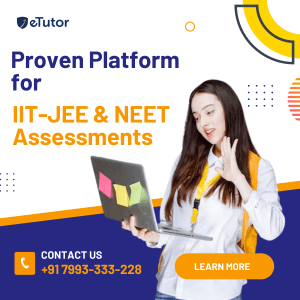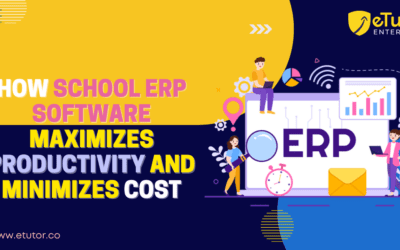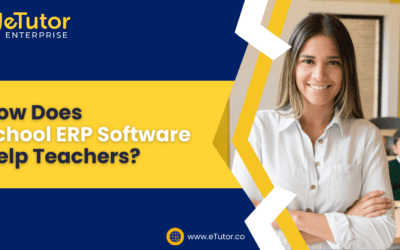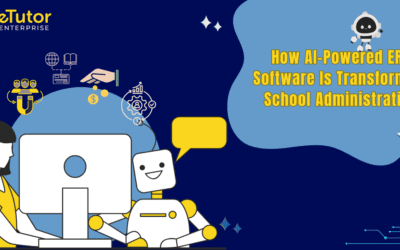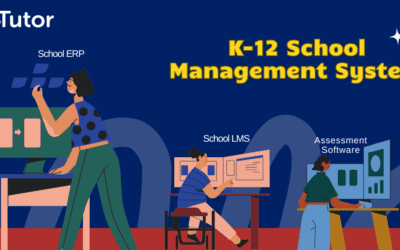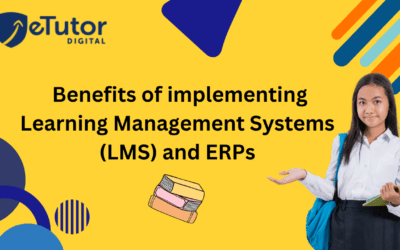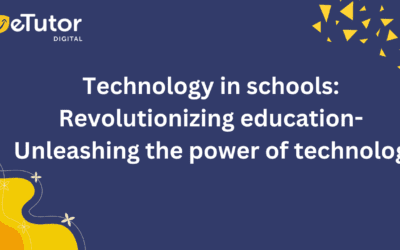All you need to know about School ERP | eTutor Enterprise

Table of Contents
ToggleIntroduction:
In an era where technology fill every aspect of our lives, education is no exception. The traditional methods of managing schools, with heaps of paperwork and manual processes, are becoming obsolete.
School ERP (Enterprise Resource Planning), a comprehensive solution that revolutionizes the way educational institutions operate. In this guide, we will explore what School ERP is, its features, benefits, and the transformative impact it has on the education sector.
Understanding School ERP:
School ERP is an integrated software solution designed to streamline and automate the day-to-day operations of educational institutions.
It encompasses a wide range of functionalities, including student information management, attendance tracking, gradebook management, communication tools, financial management, and more. eTutor school ERP is a closed based school management software that effectively streamlines admissions, attendance, and fee management to analytical reports.
Key Features:
The key features of school ERP are:
Benefits of School ERP:
Implementation Challenges and Solutions:
While the benefits of School ERP are substantial, the implementation process may pose challenges. Some common challenges and their solutions include:
Real-Life Impact:
The implementation of School ERP has already showcased transformative impacts in various educational institutions globally. One notable example is the simplification of administrative tasks at all levels.
Teachers spend less time on paperwork and administrative duties, allowing them to focus on teaching and student engagement. Parents have greater visibility into their child’s academic journey, fostering a collaborative relationship with teachers.
Administrators benefit from streamlined processes and data-driven insights. Timely access to accurate information enables them to make informed decisions, allocate resources efficiently, and enhance overall institutional effectiveness
Moreover, students experience a more connected and engaging learning environment, as communication between students and teachers becomes more accessible and transparent.
Future Trends in School ERP:
As technology continues to advance, School ERP systems are expected to evolve to meet the changing needs of educational institutions. Some anticipated trends include:
Conclusion:
In conclusion, School ERP is a transformative force in the education sector. Its holistic approach to managing educational institutions not only streamlines administrative processes but also enhances communication, transparency, and decision-making.
The benefits of School ERP extend to all stakeholders – teachers, students, parents, and administrators – creating a more efficient, engaged, and informed educational ecosystem.
As educational institutions continue to adapt to the digital age, the adoption of School ERP systems is not just a technological upgrade but a strategic move towards creating a dynamic and future-ready learning environment. The journey towards comprehensive education management begins with understanding the potential of School ERP
Recent Posts
- NTA-Based Hybrid Assessment Software for IIT-JEE Mains, Advanced & NEET
- eTutor Offline Exam Software for IIT-JEE, NEET, and Foundation with Student Performance Analytics
- NEET Test Generator for Academies & K-12 Schools
- How School ERP Software Maximizes Productivity and Minimizes Cost
- How Does ERP Software for Schools Help Educators?
